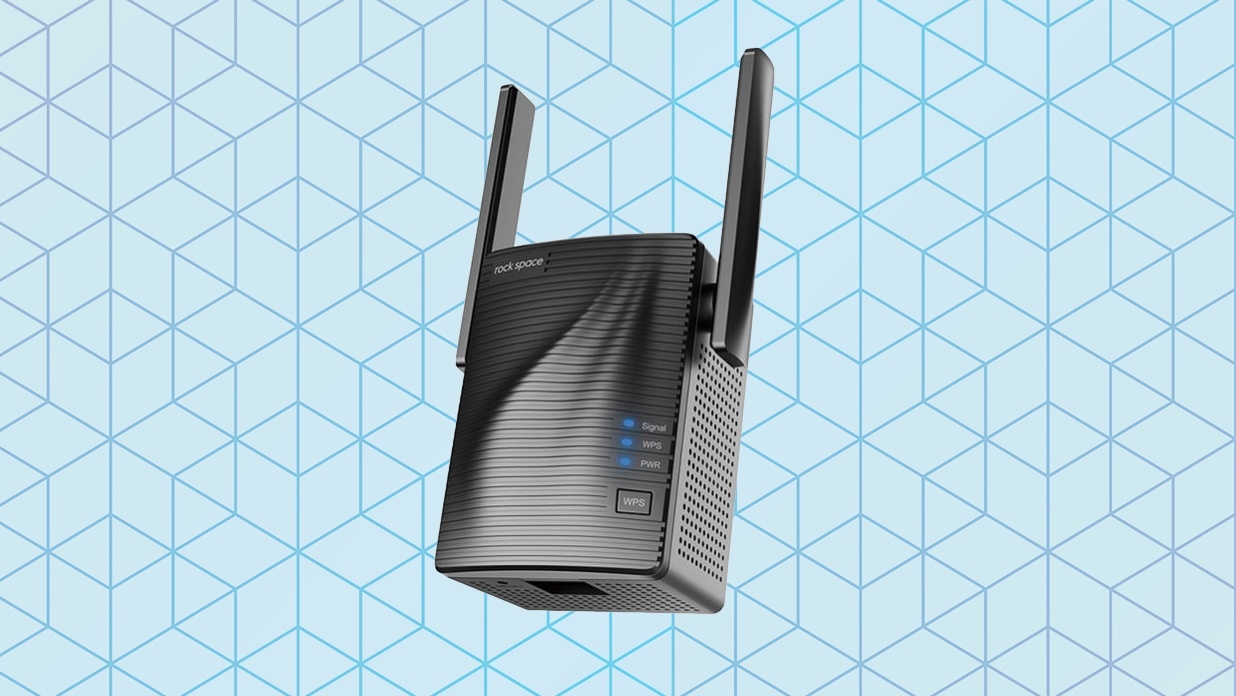Tom's Guide Verdict
Small and easy to set up, the Rock Space AC1200 WiFi Extender can help fill in a variety of Wi-Fi dead zones.
Pros
- +
Small, unobtrusive design
- +
Two adjustable antennas
- +
Quick set up process
- +
Better for townhomes
Cons
- -
No customization options
- -
No Wi-Fi 6 support
- -
Mediocre performance
Why you can trust Tom's Guide
A small plug-in device with adjustable antennas, the Rock Space AC1200 Wi-Fi Range Extender is a competent way to push wireless data into the far corners of a home. The extender's basic capabilities and lack of customization are balanced by an easy setup routine and $45 price tag. It's especially good for townhomes and other multistory environments, with better vertical reach than many plug-in units, even among the best Wi-Fi extenders.
Editor's Note: We periodically update our reviews to make sure that pricing and information is up to date. The rating and recommendations in our Rock Space AC1200 WiFi Extender review is unchanged from when it originally published in September of 2020.
Rock Space AC1200 WiFi Extender review: Design
Wi-Fi Rating: AC1200
Size: 3.4 x 3.1 x 2.0 inches
Number of Antennas/Removable: 2 external/No
Wi-Fi Specs: 802.11ac dual band
Ports: 1 Gigabit Ethernet
Performance at 15 feet: 175.4Mbps
Extender Range: 75 feet
Estimate Annual Costs: $4.90
The Rock Space AC1200 Wi-Fi Range Extender is small, unobtrusive and can help fill a home with wireless data. It has a two-prong plug, measures 3.4 x 3.1 x 2.0 inches and won’t block an adjacent outlet. Its pair of adjustable antennas can add another 1.8-inches to its height.
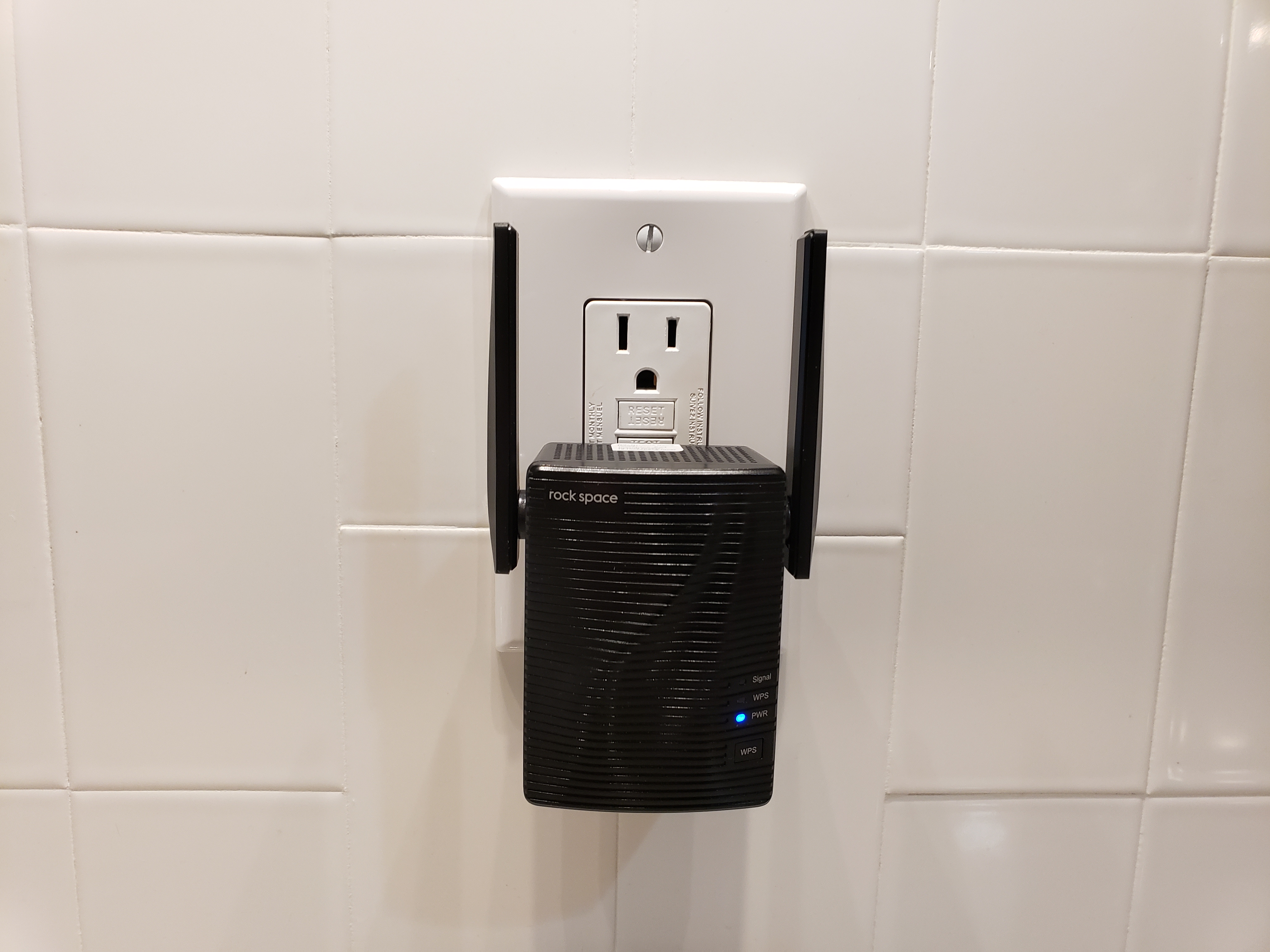
The black extender has a distinctive sculpted front and its Ethernet port allows it to operate as a traditional wireless extender or as a wired access point. The device has three LEDs that light up to show that it’s turned on, is using its Wi-Fi Protected Setup (WPS) process and its signal strength. When it’s blue, everything is fine, but if it’s red or blank, you’ll need to move the device closer to the router. There’s no way to turn the lights off, however.
On its sides, the Rock Space extender has cooling holes. Underneath, there’s a recessed reset key. The device lacks an on/off switch.
Rock Space AC1200 WiFi Extender review: Performance
The Rock Space extender has the ability to extend 2.4- and 5GHz Wi-Fi 5 networks, but you can’t combine them into a single unified LAN. Built around the Realtek RTL8197FS Wi-Fi chip, the extender has a 1GHz processor and can theoretically move up to 300Mbps in 2.4GHz mode and up to 867 in 5GHz mode. It carries an AC1200 rating.
Using Ixia’s IxChariot networking performance benchmark and a TP-Link Archer C5400X router, the Rock Space range extender fell behind the best at filling my 100-year old 3,500-square-foot home. Able to move upwards of 175.4Mbps at 15-feet, the device fell behind anything we saw in the Netgear EAX20 extender review (375.4Mbps). It had a range of 75-feet, 20-feet short of the Netgear EAX20. (Older products, like the one seen in our Super Boost Wireless-N Wi-Fi Repeater review, fared far worse, so it's always worth getting devices that use more current standards.)
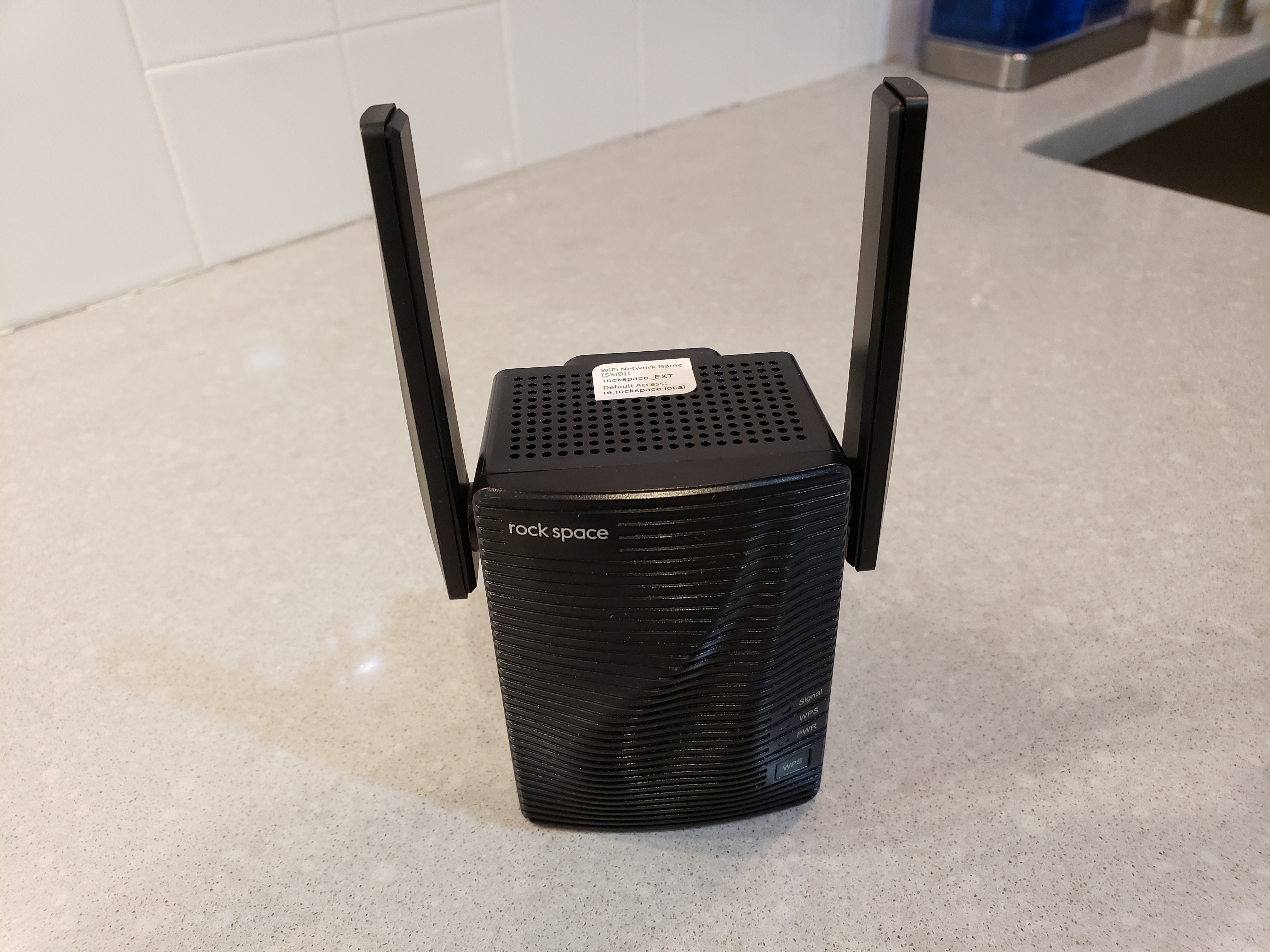
With it set up on the same floor 40-feet from the host router, the Rock Space extender delivered 50.0Mbps to a test machine 50-feet farther away. That’s well off the Netgear EAX20’s 124.4Mbps pace. The Rock Space extender partially redeemed itself when I set it up a floor above the router and placed the test machine 40-feet away. It delivered 112.1Mbps, right behind the Netgear EX2800’s 124.4Mbps. This makes it ideal for multi-floor use, like in a townhouse.
The Rock Space Wi-Fi range extender used 4.3-watts of electricity. If it’s on for 24 hours a day, the device will have an estimated $4.90 in yearly electricity costs if you pay the national average of 13 cents per kilowatt-hour.
Rock Space AC1200 WiFi Extender review: Features
Lacking many of the amenities we take for granted in Wi-Fi equipment, the Rock Space extender creates 2.4- and 5GHz Wi-Fi 5 networks. Under ideal conditions its maximum throughput is 300Mbps (for 2.4GHz transmissions) and 433Mbps (for 5GHz) and Rock Space specs it to fill about 1,300 square feet with usable signal.
It does without most of the customization and configurations options we take for granted. About the only thing you can do with the Wi-Fi Range Extender is change the network names and passwords. Forget about adjusting the extender’s transmission strength, combining its two networks into a single name or even turning the LEDs off.
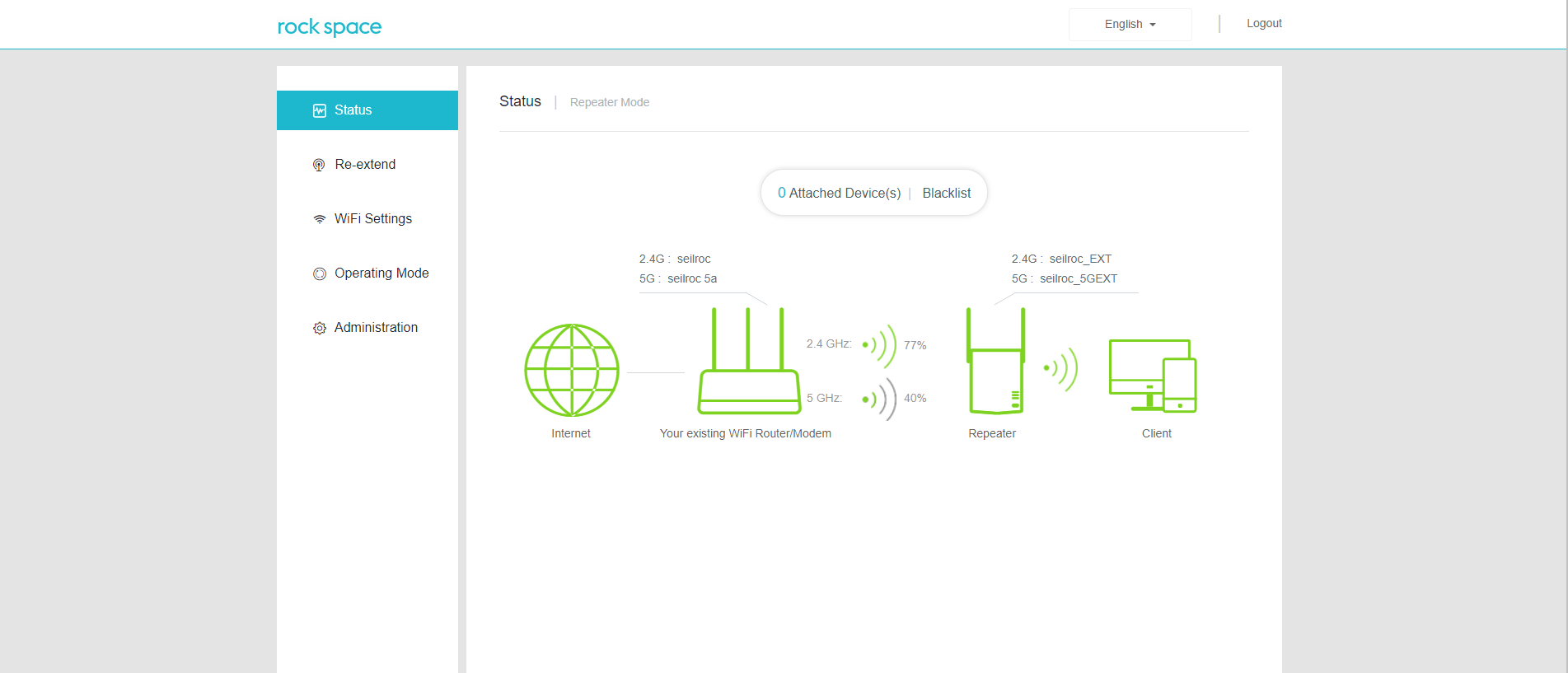
Rock Space AC1200 WiFi Extender review: Setup and software
Rock Space claims that you can set up the Wi-Fi Range Extender in 8 seconds. While that’s a bit optimistic, the 5-minute set up time makes the Rock Space extender one of the fastest to install. See our guide to How to set up your Wi-Fi extender for the best signal for handy tips.
Rather than setting up the extender through an app and having to create an account with the manufacturer, Rock Space uses the connected browser approach. After connecting my ThinkPad T470 to the Wi-Fi Range Extender’s default network (“rockspace_ext”), I typed “re.rockspace.local” into the browser’s address window.
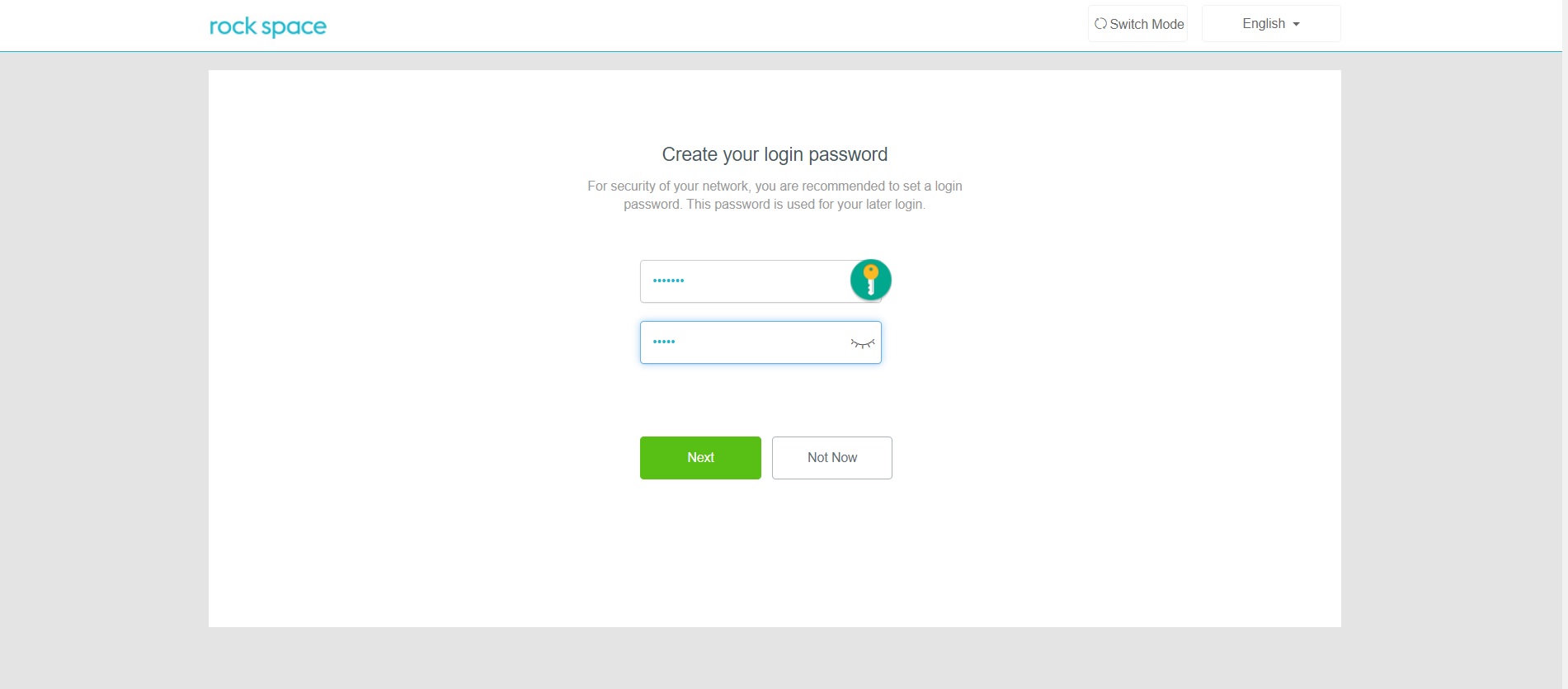
The interface asked for a password for making subsequent changes to the device. Then, the system scanned for available networks to extend. Once I picked the network I wanted to extend, I added a network name and password.
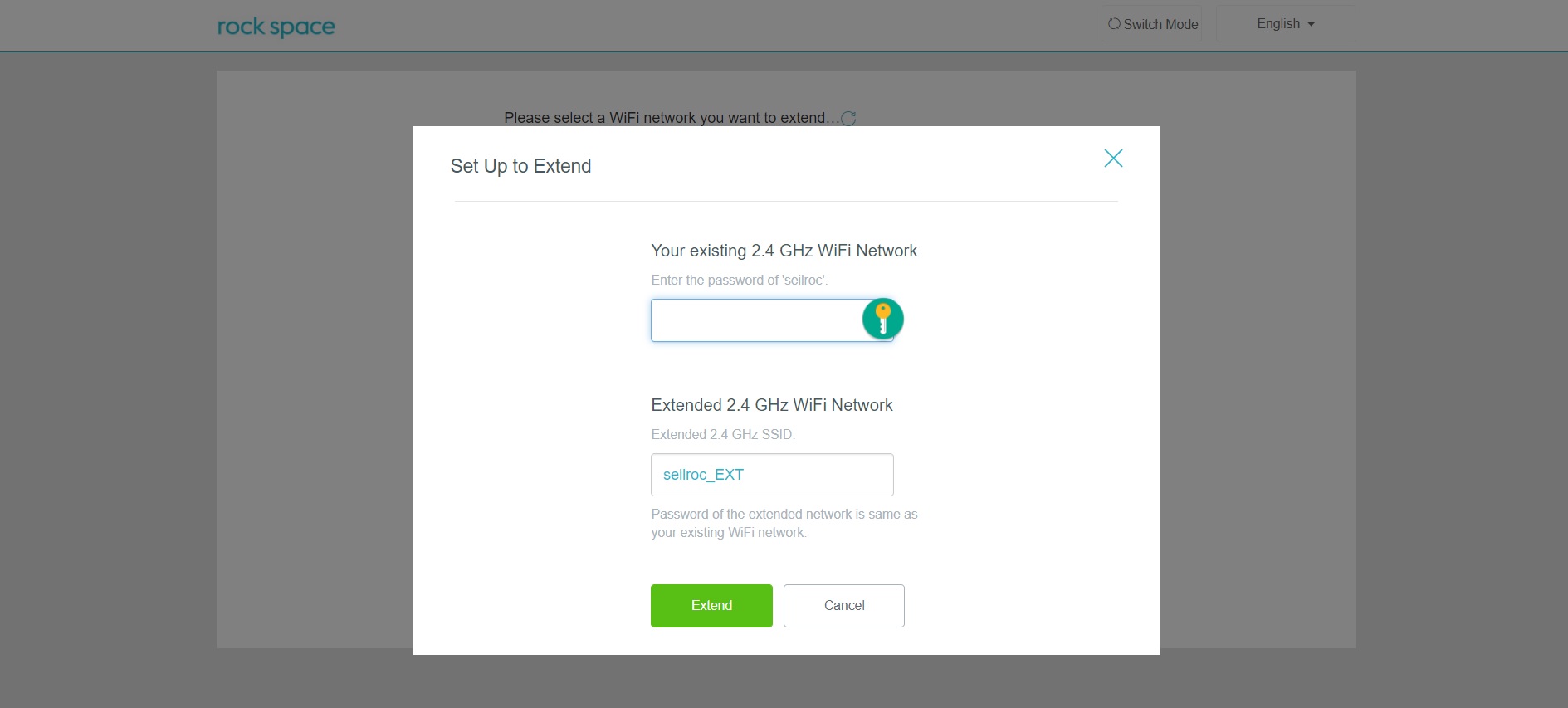
On the first try, the device yielded 184Mbps out of my 200Mbps broadband. With everything working, I moved the extender to a spot 40-feet away and fired it up. The LED glowed blue, showing it was online.
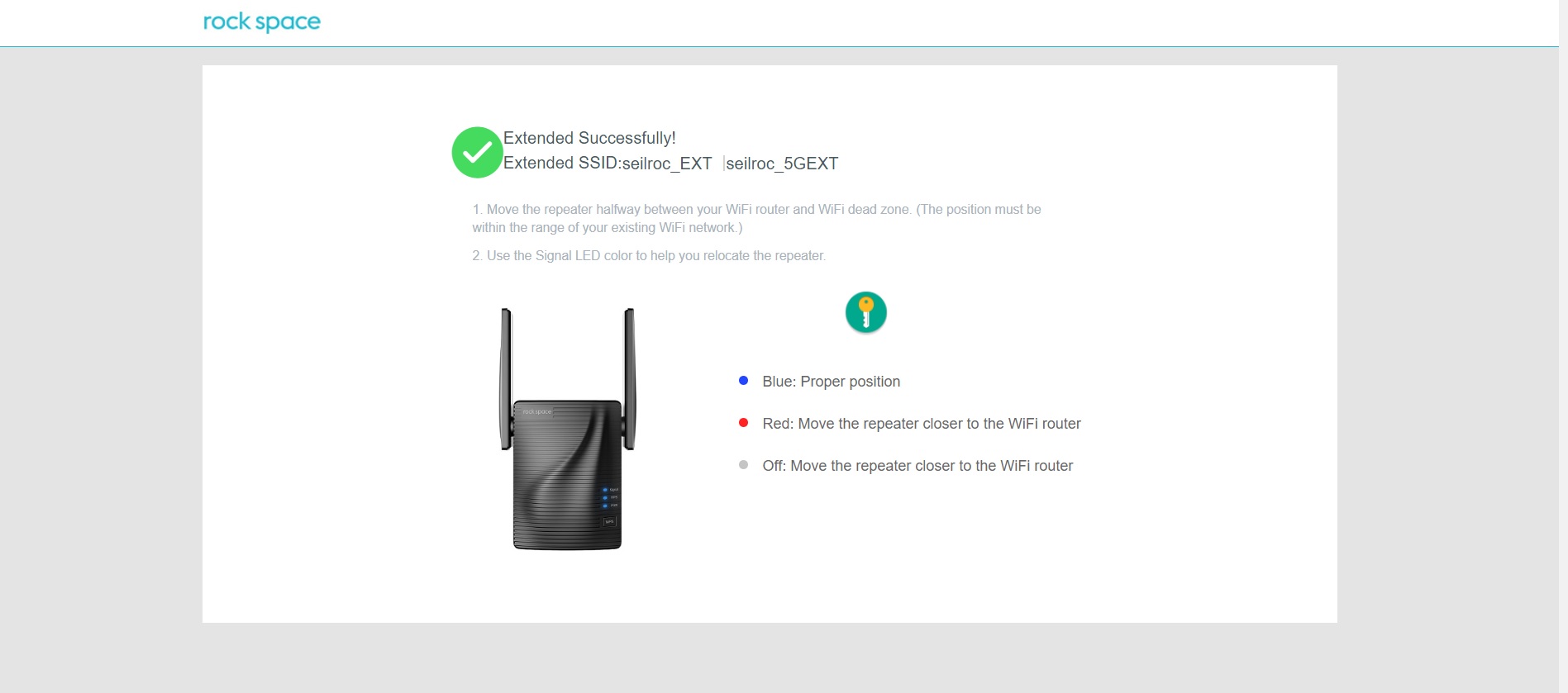
Rock Space AC1200 WiFi Extender review: Warranty and support
Rock Space stands by the Wi-Fi range extender with a one-year warranty and service. That’s half as long as TP-Link’s RE650’s two-year warranty. It’s better than Netgear’s 90-day support policy, though.
Instead of 24/7 support, Rock Space has technicians standing by to help from 9AM to 6PM (central time); when I sent them a question, they responded in two days with an answer. The Web site lacks set up videos but has lots of troubleshooting help.
Rock Space AC1200 WiFi Extender review: Verdict
If you’re looking for a small and simple Wi-Fi extender, Rock Space’s Wi-Fi Range Extender does the trick. It may not have the range, performance and features seen in our Netgear AX1800 Mesh Extender (EAX20) review or the TP-Link RE650 review, but the Rock Space extender comes through by delivering moderate amounts of data where it’s needed. At $45, it is an inexpensive way to extend a Wi-Fi network, but lacks customization options and is better suited for a townhouse than a ranch home.
Brian Nadel is a freelance writer and editor who specializes in technology reporting and reviewing. He works out of the suburban New York City area and has covered topics from nuclear power plants and Wi-Fi routers to cars and tablets. The former editor-in-chief of Mobile Computing and Communications, Nadel is the recipient of the TransPacific Writing Award.
